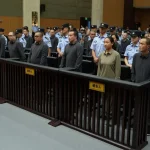The results of a research survey conducted this year by the AfroChampions Initiative – a regional public-private partnership of Africa’s largest multinationals – indicate that Ghana currently is far from competitive enough to benefit from the new pan-continental single market being created by the Africa Continental Fee Trade Area. The survey reveals that no Ghanaian company ranks among the biggest indigenous African corporations in Africa; yet the country is the second largest importer of goods and services produced by African multinationals domiciled in the other countries on the continent. Only Zambia imports more goods and services produced by other African countries.
The research survey thus warns that when AfCTA comes into effect, expectedly by July 2020, African countries other than Ghana can expect to further leverage on their impending new ability to export to Ghana duty-free, with a view to increasing their already huge exports to the country. Conversely however there are no Ghanaian domiciled, indigenously owned multinationals with the size – and by extension, continental sales capacity – to compete with the biggest indigenous African multinational, such as South Africa’s MTN, Nigeria’s Globacom and Standard Bank of South Africa with regards to taking advantage of the new dispensation to expand already significantly large export markets within the continent.
This worrying data – the first quantitative assessment of the competitiveness of Ghana’s competitiveness against its African counterparts in the impending largest regional single market in the world – was revealed by Michael Kottoh, Managing Partner of Konfidants, an international advisory firm, who is also co-founder and chief strategist of AfroChampions, at yesterday’s Ghana Rising conference organized in Accra by Citi FM and Citi TV. The conference brought together an array of top tier Ghanaian entrepreneurs, corporate executives and industry facilitators and regulators with a view to discuss and identify ways to promote indigenous Ghanaian businesses.
Ghana has been a major driver of the new free trade area which it hopes to use as a platform to dramatically increase its non-traditional exports; the country is targeting US$5 billion annually in NTEs by 2021 but has been stuck at below US$3 billion for several years now. Indeed Ghana is so enthusiastic about the new initiative that it successfully bid to host the secretariat for AfCTA,
Interestingly, Konfidants consultancy itself conducted a very revealing research survey between November 2018 and May this year that indicates that made in Ghana products are enjoying very low market share at home in Accra’s eight biggest supermarkets compared with imported alternatives. Their study reveals that on average, made in Ghana goods account for just 18 percent of the inventory of the eight biggest retail outlets in Accra with regards to consumer products. Indeed, with the exception of eggs and packaged water, no Ghanaian made products account for up to 50 percent of the goods on sale in those retail outlets. While 90 percent of eggs on sale in these outlets are produced in Ghana and 56 percent of water, only six percent of rice on sale is made in Ghana, only 37 percent of meat, 49 percent of sugar and salt, 18 percent of fish and other seafood, 10 percent of alcoholic drinks , 36 percent of fruits and vegetables and just six percent of both biscuits and beauty products.
Curiously though, the study reveals that 73 percent of the made in Ghana goods put on sale in these retail outlets are cost competitive compared against their imported competition. The study is unable to identify why locally produced goods are suffering such low market share despite being cheaper than their foreign counterparts. Mr Kotto dismisses the possibility of significant differences in product quality on the grounds that all products – whether locally made or imported – have been approved by Ghana’s Food and Drugs Authority. However it raises the possibility that Ghanaian made goods are not being promoted by retailers compared with imported goods especially by foreign retailers.
The one day Ghana Rising conference organized by Citi FM and TV provide a platform for the exchange of information and deliberations with which to chart a new course and energize the indigenous Ghanaian business community in the areas of agriculture, agribusiness, finance, the green economy, and the oil and gas industry among others.
















